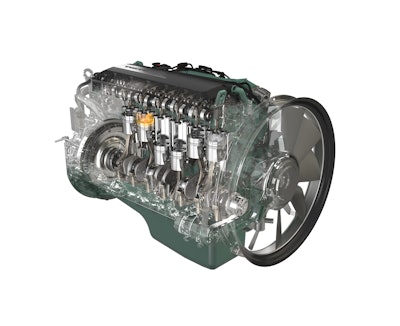
In an ongoing effort to reduce the environmental impact of its products, Volvo Penta has approved the use of hydro-treated vegetable oil (HVO) – neat or blended with conventional diesel – in all of its diesel engines. The approval is based on extensive field testing and endorsement of HVO for on-road use by sister company Volvo Trucks, part of the Volvo Group. Volvo Penta engines do not need any type of approval or specific certification for HVO usage.
HVO is a renewable, paraffinic fuel, also known as “synthetic diesel”, which can be produced from a variety of vegetable and animal sources. It can be used in all applications where fossil diesel is used today. A reduction of CO2 emissions by up to 90% can be realized, depending on the feedstock used in the HVO production. Compared to most conventional diesel fuels, it also results in a substantial reduction of soot and is sulfur free.
HVO fuel can be distributed, handled and stored like traditional fuel. Whether it is neat or blended with conventional diesel fuel, it can be used in any Volvo Penta engine without modifications. In addition, there are no changes needed to service intervals and normal warranty conditions are applicable.
“We see an increased customer interest for HVO and other renewable fuels. HVO is especially interesting due to its environmental footprint, as well as, to its similarities with diesel fuel,” says Dr. Rolf Westlund, research coordinator for Volvo Penta. “It is a stable fuel, which does not require any engine modifications or any additional maintenance of the engine.”




















